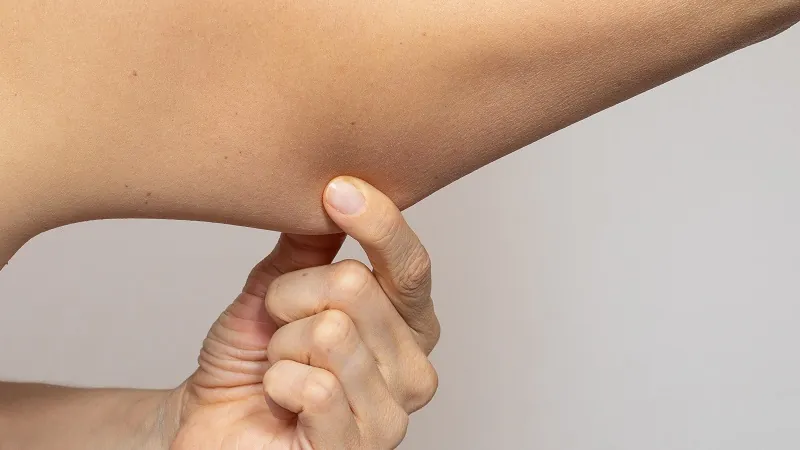How to Lose Weight Fast and Why You Shouldn’t
Maintaining a healthy weight is a sensible strategy for staying healthy and trying to slow down aging. However, a lot of people try to lose weight fast through crash diets and extreme calorie cutting. This is a bad idea, and there’s a better way to go about sustainable weight loss.
The pitfalls of crash diets and how to lose weight safely
There is no safe and fast way to lose weight, nor should you attempt to quickly lose pounds because you have an impending vacation or social function and want to look your best.
For longevity purposes, though, you might want to lose weight to slow down how fast you are aging and stay healthier for longer. In the long run, you can increase your chances of living a long, healthy life while still looking good. You simply need to make sure you that are not losing weight too quickly and that you are doing it in a safe and sustainable way.
Why lose weight anyway?
Being overweight is a risk factor for multiple conditions, including type 2 diabetes, high blood pressure, metabolic syndrome, and heart disease. It can also make day-to-day life more difficult, and there are social and psychological considerations as well.
How fast we age is also impacted by weight and lifestyle. Researchers have calculated that eating the perfect diet could potentially increase your lifespan by 13 years! Of course, very few people consume such a perfect diet, and the odd treat here and there is one of the things that make life worth living.
Unfortunately, some people are tempted to take extreme measures to lose weight fast so that they can see the results, but this is a recipe for disaster. A sudden drop in calories could lead to serious health problems.
Losing weight too fast is a bad idea
Even if it makes you look slimmer in the short term, losing weight very quickly can lead to long-term issues:
Muscle loss: The goal of losing weight is to reduce the amount of body fat you have, but if you lose weight too fast, you lose muscle mass along with it. Extreme dieting that leads to rapid weight loss can cause a loss of lean muscle mass.
This is because crash dieting starves the body of the fuel it needs and forces it to break down muscle mass to use for energy. This loss of muscle mass can then lead to a loss of strength, making it harder to perform everyday tasks, and it can also weaken the immune system.
Also, because muscle tissue is more metabolically active than fat, meaning that it uses more calories to function than fat, losing that muscle makes metabolism worse. Losing significant muscle mass actually slows down metabolism and reduces the amount of calories that the body regularly burns.
This loss of muscle mass also happens as part of aging, so losing weight fast through crash diets adds to that metabolic decline. This is not exactly the best idea if slowing down aging and staying healthy is your goal!
Nutrient deficiencies: The majority of crash diets are not only very low in calories, they are often nutritionally poor. They frequently exclude whole food groups, which makes becoming deficient in some key nutrients a significant risk. Our body needs a diverse range of vitamins and minerals to function properly and remain healthy, and extremely limited diets can result in nutrient deficiency.
Low-calorie crash diets typically lack vital vitamins and minerals, including B12, calcium, iodine, iron, and B7. Being deficient in calcium, for example, can lead to weak bones and a risk of bone fractures and osteoporosis. Any diet should include fruits, vegetables, and other nutritious foods that contain key nutrients.
Loss of energy: Crash dieting can leave you short of the energy you need to go about daily life. Not eating enough calories can leave your body starved of the energy it needs to function. The end result of not eating enough calories is a lack of energy, lethargy, and feeling weak, dizzy, and tired. Excessive caloric restriction can lead to mood swings, irritability, and agitation.
Slow and steady wins the race of weight management
Multiple studies have suggested that if you lose weight steadily over a period of time, you are much more likely to maintain that weight in the long term than if you crash diet.
While they do lose weight initially, many people find that they rebound after the diet, regaining all the weight they lost and often more. This phenomenon, known as yo-yo dieting, shows that extreme dieting does not lead to maintainable weight control.
The truth is, if you want to lose weight and keep it that way, then a gradual weight loss approach is the better choice. The key to healthy weight loss is through lifestyle changes that are sustainable and practical in the long-term. Long-term weight loss is like running a marathon, not a sprint.
What can you do to lose weight safely?
There are a number of things you can do right now to lose weight safely.
You should:
- Limit the amount of highly processed foods you eat, as they contain excessive salt, sugar and artificial additives. This includes chips, chocolate bars, and cookies.
- Eat a balanced diet that includes quality protein sources, such as chicken, fish, legumes, beans and nuts.
- Make whole grains, such as quinoa, brown rice, sweet potato, and oats, part of your daily food intake.
- Eat sources of healthy fats, such as avocado, olives and olive oil, and nuts.
- Make sure plenty of fruit and vegetables are part of your daily diet.
- Get lots of fiber from whole grains, beans, broccoli, lentils, and chia seeds.
- Pay attention to portion sizes. It is very easy to eat too much, but a calorie counter app can help to track your intake. Fitbit, Lose it!, My Fitness Pal, and Nutritionix are some examples.
- Eat on smaller plates. Researchers have shown that people eat less food when it is served on a smaller plate compared to a larger one.
- Combine diet and exercise. Gentle exercise such as walking is a great combination with a healthy diet to lose weight and keep it off.
You should not:
- Cut out whole food groups to lose weight: this is a bad idea. For example, removing all carbs or dairy from your diet, as some fad or crash diets do, can lead to nutrient deficiencies.
- Reduce your calorie intake too dramatically, as it can be dangerous. Most people attempting safe weight loss should reduce their calories by around 500 a day. This equates to losing 1 pound of weight a week and is realistic in the long term. Between 1 and 2 pounds per week is a safe and healthy rate to lose weight, but anything beyond that is not healthy.
- Eat while distracted by TV, games, or phones. Research shows that when we are distracted we can eat up to 30% more food compared to when eating without such distractions.
What to expect when starting a safe weight loss lifestyle
Losing between 1 and 2 pounds a week is widely regarded as being a safe and healthy rate to lose weight. Losing weight faster than this is not safe and will likely result in the yo-yo effect.
When you first begin a new healthy diet regime, it is common to lose weight faster than 2 pounds a week for the initial few weeks. This is due to the loss of ‘water weight’ and is perfectly normal.
This happens because when you consume fewer calories than you burn, the body starts to metabolize glycogen as a fuel source. Glycogen is bound to water while it is stored in the body, so when you start burning it, the water is also released.
Shedding water weight typically lasts a couple of weeks when switching to a healthy weight loss diet. After that, weight loss slows down and settles between a healthy 1 to 2 pounds a week.
Fasting and caloric restriction for longevity
People interested in life extension often consider fasting (abstaining from eating for a given amount of time) or caloric restriction (a reduction in the amount of calories consumed while maintaining healthy nutrition) as a way to cut calories and lose weight safely.
These techniques may impact how fast you age and even how long you live. The evidence to support that is currently relatively weak in humans, though it is strong in other species.
You can learn more about fasting and caloric restriction here:

Read More
The take-home
Regardless of your weight loss goals, losing it safely and staying healthy while doing it is key. Losing weight and maintaining that means more than simply dropping a dress size, being able to tighten your belt up another notch, or getting back into a favorite pair of old jeans that you haven’t worn in years.
How you go about losing weight is the most important thing here. Because weight loss can impact your health in good and bad ways, it is critical to make sure you are doing it the right way. Crash diets to lose pounds fast may seem a tempting prospect, but the truth is that slow and steady weight loss is really the way to do it: there are no quick fixes.



